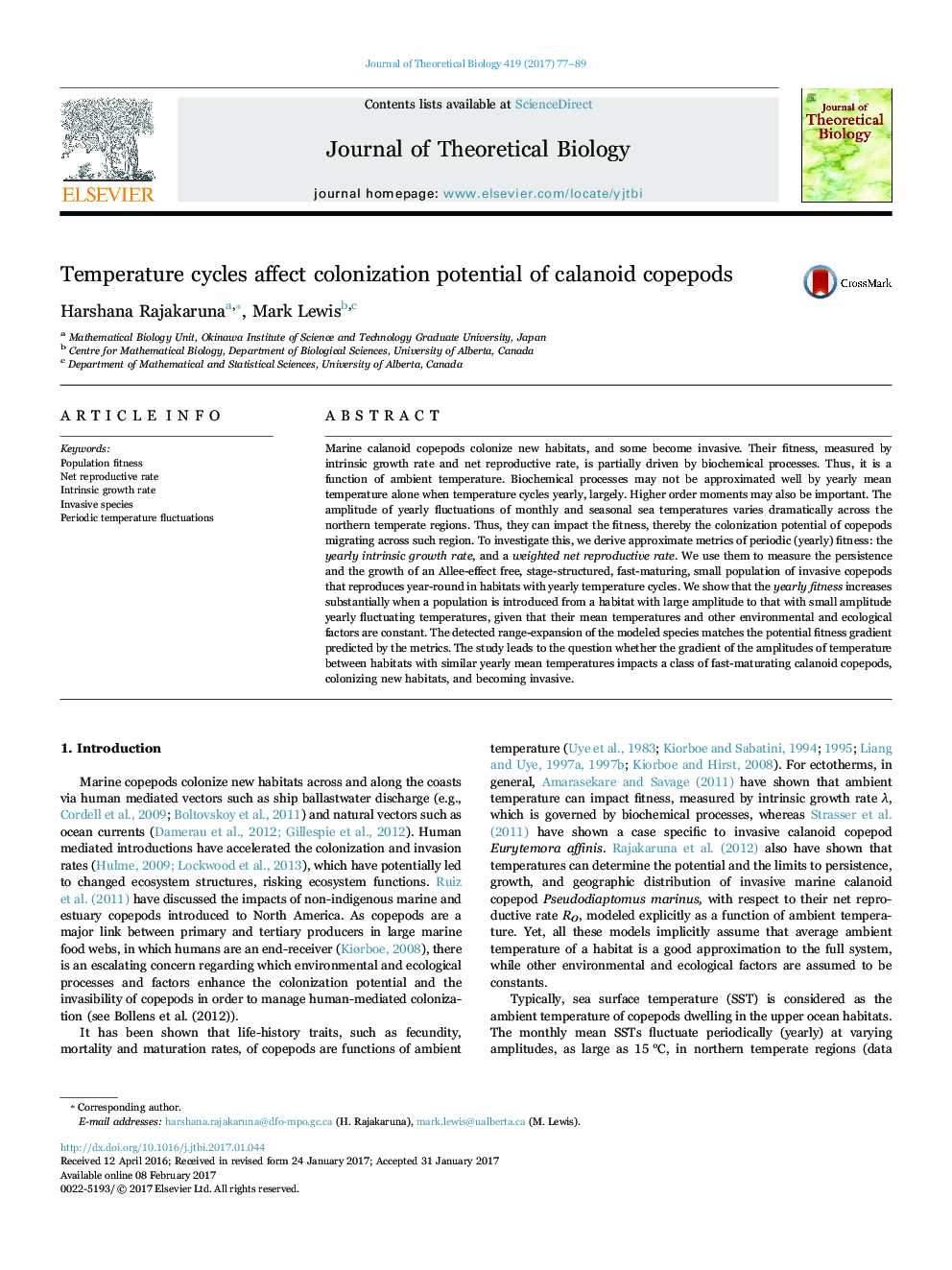| Article ID | Journal | Published Year | Pages | File Type |
|---|---|---|---|---|
| 5760125 | Journal of Theoretical Biology | 2017 | 13 Pages |
Abstract
Marine calanoid copepods colonize new habitats, and some become invasive. Their fitness, measured by intrinsic growth rate and net reproductive rate, is partially driven by biochemical processes. Thus, it is a function of ambient temperature. Biochemical processes may not be approximated well by yearly mean temperature alone when temperature cycles yearly, largely. Higher order moments may also be important. The amplitude of yearly fluctuations of monthly and seasonal sea temperatures varies dramatically across the northern temperate regions. Thus, they can impact the fitness, thereby the colonization potential of copepods migrating across such region. To investigate this, we derive approximate metrics of periodic (yearly) fitness: the yearly intrinsic growth rate, and a weighted net reproductive rate. We use them to measure the persistence and the growth of an Allee-effect free, stage-structured, fast-maturing, small population of invasive copepods that reproduces year-round in habitats with yearly temperature cycles. We show that the yearly fitness increases substantially when a population is introduced from a habitat with large amplitude to that with small amplitude yearly fluctuating temperatures, given that their mean temperatures and other environmental and ecological factors are constant. The detected range-expansion of the modeled species matches the potential fitness gradient predicted by the metrics. The study leads to the question whether the gradient of the amplitudes of temperature between habitats with similar yearly mean temperatures impacts a class of fast-maturating calanoid copepods, colonizing new habitats, and becoming invasive.
Related Topics
Life Sciences
Agricultural and Biological Sciences
Agricultural and Biological Sciences (General)
Authors
Harshana Rajakaruna, Mark Lewis,
